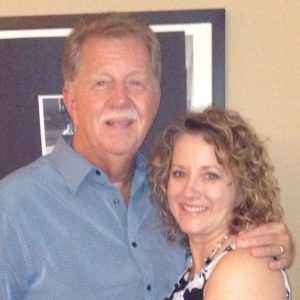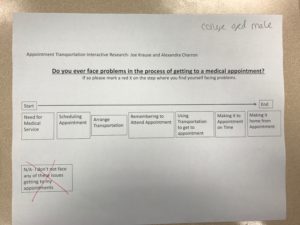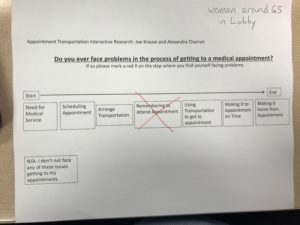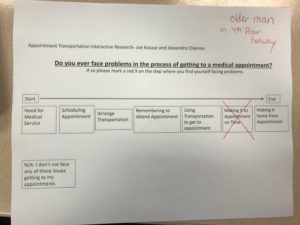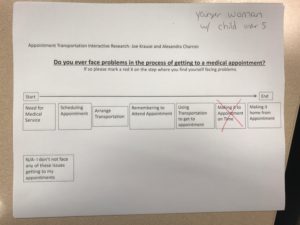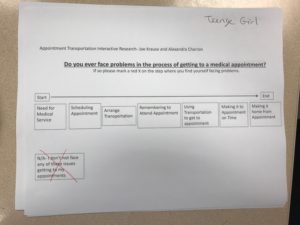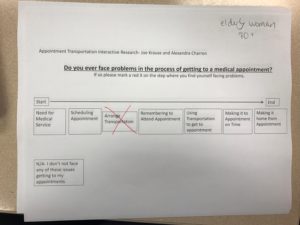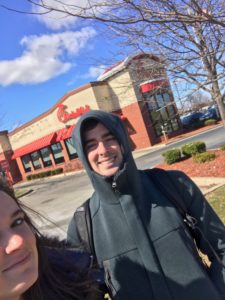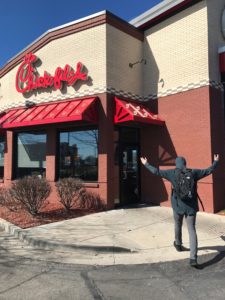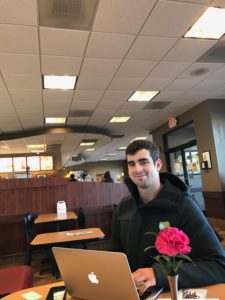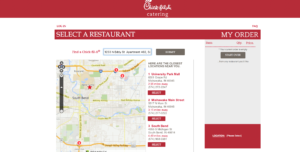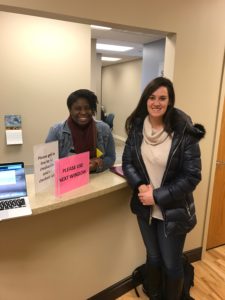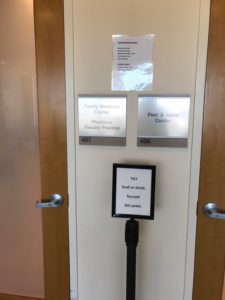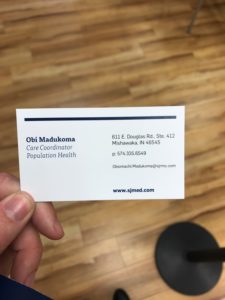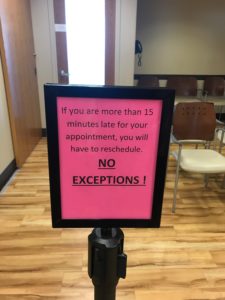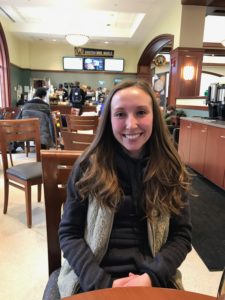Ethnographic Summary
Annie
Licensed Practical Nurse – Woodridge Assisted Living
Date: 03/05/17
Location: Woodrige Assisted Living. 17650 Generations Dr, South Bend, IN 46635
Participants: Connor De Mill, Nick Homolka
Raw Audio Interview: https://goo.gl/41ibUw
Interview Transcript: https://goo.gl/T6g8RM
Connor and Nick interviewed Annie, a licensed practical nurse from Nairobi, Kenya working at Woodridge Assisted Living. Annie was chosen by Woodridge’s administration to participate in our interviews as an exemplary member of the care staff. Annie was able to provide interesting insights into the unique nature of caring for retirees, some of the reasons retirees are forced into assisted living, and the challenged she faces on the job.
Characteristics:
- Born in Nairobi, Kenya
- 40 years old
- Female
- Began career as a dental assistant
- Became a nursing assistant after moving to the U.S. in 2000
- Became an LPN in 2008
- Has a variety of nursing and elder care experience
Key Insights:
- Annie was drawn to elder care from a young age as she wanted to take care of her sick grandmother
- Annie has had a number of difficult experiences with patients and residents, she has been both physically and verbally assaulted
- Annie deals with difficult patient experiences through empathy
- The greatest satisfaction Annie gets from her job is being thanked by those she cares for
- Assisted living is very different from other types of elder care. There is no acute care performed, and the medical equipment and staff at the location are not there to deal with medical emergencies. Assisted living serves as a home for the residents, more like an apartment than a medical facility
- Annie believes that the biggest innovation related to her job has been computer charting. She believes that if computer charting were to be fully implemented at Woodridge, she would be able to perform her job much more efficiently
- Annie pointed out that two of the most significant causes of a retiree having to move out of their home are critical events like falls and illnesses, and a failure to take medication properly
- Annie has no desire to retire and wants to keep working as long as possible
- Annie believes that the most unique difficulty of dealing with retirees is the high prevalence of depression
Memorable Quotes:
“Sometimes it’s a fall or sometimes they’re just not taking the medication the way they’re supposed to take it. I’ve had somebody come in, and they’re told to take calcium 3 times a day and they say, ‘you know I forgot my dose in the morning and I forgot it at lunch so I decided to take 3 pills at night’. It happens. Or, ‘I just decided to skip my insulin’ and their blood sugar is way up so when it goes way up there try to double dose and then the blood sugar goes way down and then they’re in critical condition.”
” Depression, is a huge thing. They are separated from their families. And sometimes families don’t get to come visit them. Or they don’t see them as often, so with that age it’s a big time to go more into depression. And it can be from somebody being tearful, to somebody just quitting to eat, or somebody just completely stopping to mingle with other people, and we want to prevent that.”
Emerging Patterns:
Our caregiver interviews have consistently indicated that high performing caregivers love their jobs, and are very committed to patient well being. These individuals have no desire to retire due to the fact that they wish to continue making an impact on people’s lives. They have also consistently identified mental fitness and emotional well being as key components of health that are frequently ignored.
